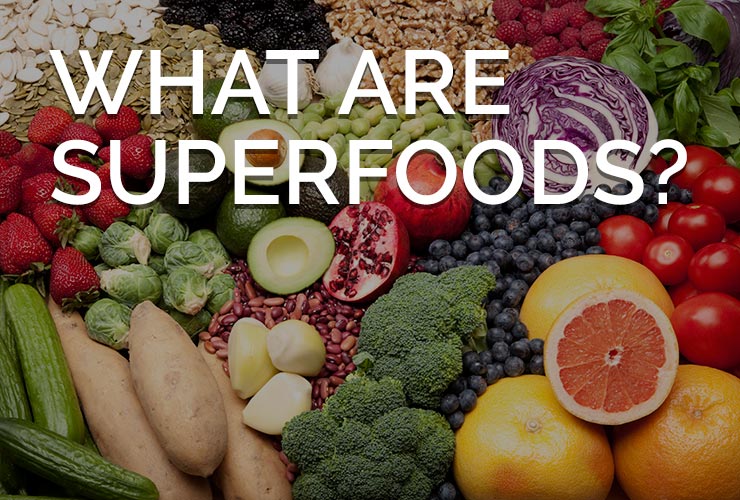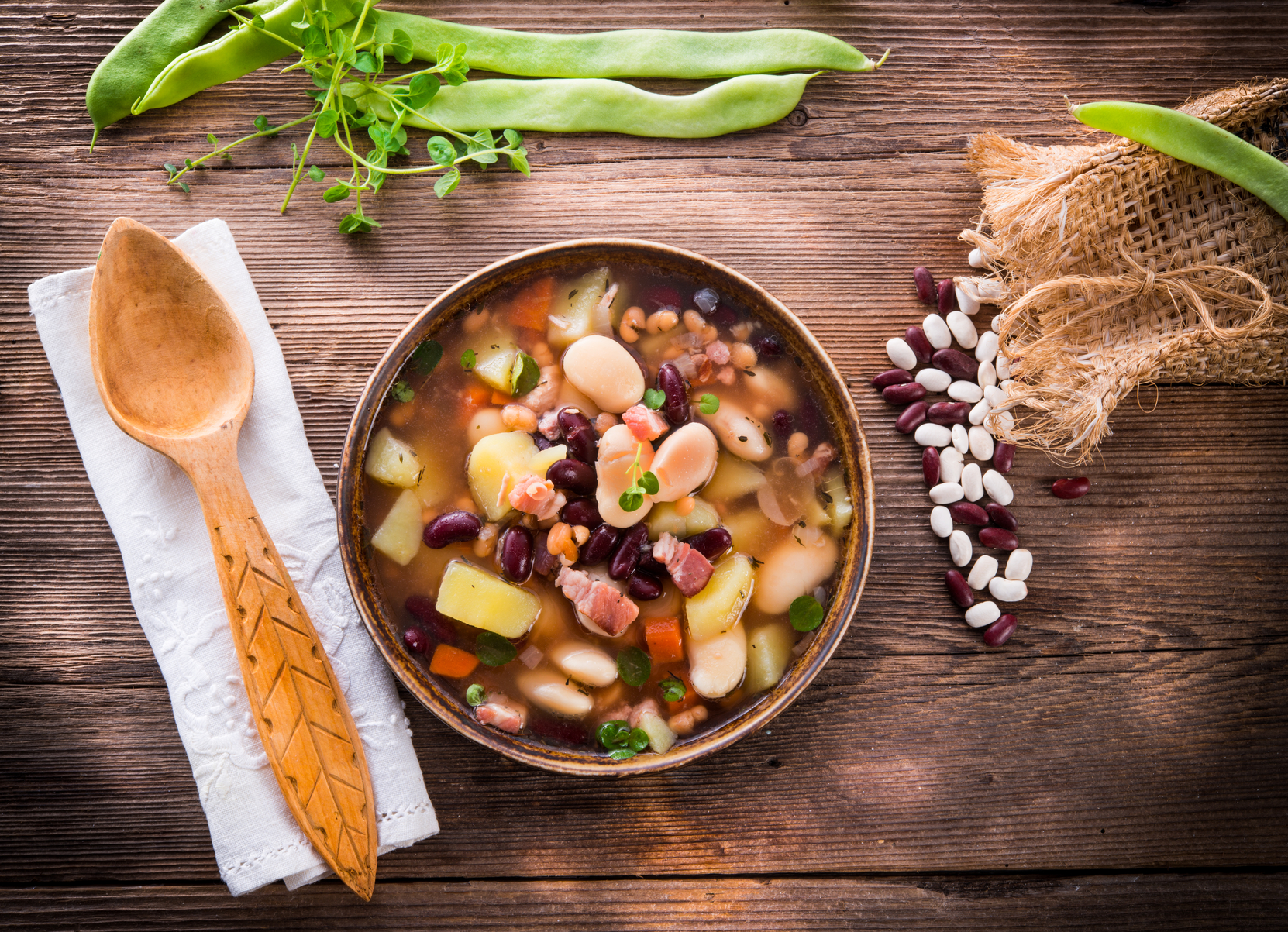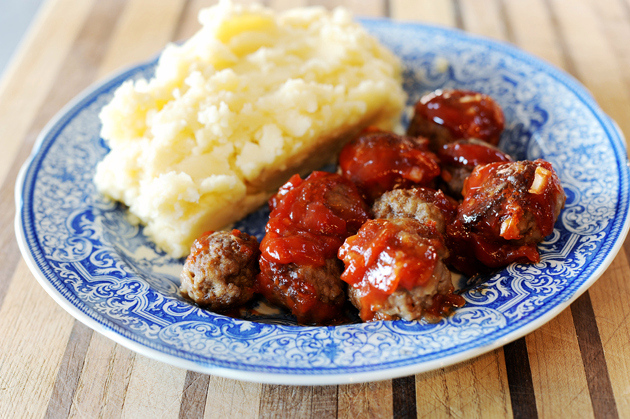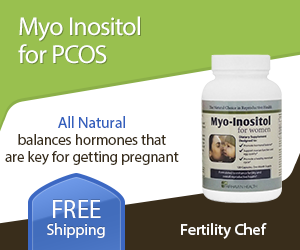Top 10 PCOS Diet Super Foods
Adopting a PCOS diet regimen is essential for those suffering from Polycystic Ovarian Syndrome, as the foods we choose have a profound impact on how this disorder expresses itself in its hosts. While it isn’t exactly understood how many women end up with PCOS in the first place, it is understood at this point that its effects and symptoms can be aggravated by eating certain foods. Many of these foods, which contain excessive amounts of simple carbohydrates, cause insulin spikes, which in turn can lead to problems relating excessive testosterone release from the ovaries, causing multiple cysts to form on them. This inhibits fertility, in addition to a multitude of problems caused by high testosterone levels.
However, just as eating certain foods can cause your PCOS to flare up aggressively, other foods can dampen its effects. This can help minimize the effect of this disorder on your life, whether you are seeking to finally conceive before your biological window closes, slim down your stubborn cellulite, or clear up your complexion.
The following ten super foods will slot in well with your PCOS diet, granting you tons of energy, nutrients and minerals to help you face everyday with vigor, all while kicking the butt of Polycystic Ovarian Syndrome into next week. Let’s learn about each of them in more detail:
 1) Chicken Breast
1) Chicken Breast
Since any PCOS diet cuts back on the carbohydrates responsible for inflammation and excess insulin production, replacing that portion of calories needs to come from increased consumption of protein and healthy fats. Skinless chicken breast is an excellent source of the former, as its contains 21 grams of protein for every 100 grams of breast you buy.
Additionally, it contains ample amounts of vitamin B6, which serves a vital function in helping to reduce the stressors that cause PCOS. Vitamin B6 help keeps your hormones at balanced levels, which is very helpful for those seeking to stem the flow of excessive testosterone and androgen (1).
 2) Raw cacao powder
2) Raw cacao powder
Looking for a way to perk up the food and drinks that dominate the menu of many PCOS dietary plans? Adding some raw cacao powder is the perfect way to achieve this, as not only will this introduce much desired hit of chocolate-like flavour into your routine, but it also allows minerals like magnesium into your system, which helps to improve insulin sensitivity (2), and iron, which can help to improve hemoglobin counts in PCOS sufferers that have heavy periods (3).
Enjoy this predecessor chocolate by tossing it in the blender as an ingredient when you go to make a smoothie in the morning, but if you decide to throw it in your coffee, beware: when chocolate is heated, nutrients and minerals are destroyed, so stirring it in after your cup has had a chance to cool down would the best way to work it into your day.
 3) Goji Berries
3) Goji Berries
Getting required amounts of nutrients on a PCOS diet is going to require some intelligent substitutions to satisfy your bodies’ needs while minimizing the disorder’s symptoms. Out of all the foodstuffs in this article, Goji berries are likely the nifitest hack, as this raisin-like fruit contains a wide spectrum of amino acids, 21 trace minerals, and a laundry list of many other nutrients that your body needs on a daily basis. 12.3 grams of protein can be had with a single 100 gram serving of Goji berries, with all eight essential amino acids being present within the berry, making it an excellent way to ensure that you get enough of it throughout the day.
In addition to it being a quick and easy way to fuel up on a bunch of nutrients at once, make sure your husband joins in the feast, as it has been shown that Goji berries increase sperm count and their collective vitality (4), thus increasing your chances of getting pregnant.
 4) Spinach
4) Spinach
While dark green vegetables are highly spoken of in general for those on the PCOS diet, spinach is likely the best of the lot. Few comparable greens can match its nutrient density, which keeping your overall calorie count low. Among a bucket load of other minerals and nutrients, it is also an excellent source of vitamin K, vitamin A, vitamin C, and vitamin B6, all of which have significant roles in reducing inflammation in the body. Spinach is a recommended food on our infertility diet.
 5) Avocados
5) Avocados
At some point in the past, you might have read that avocados were just loaded with fat. In those days, they were all considered universally bad … thus, avocados were deemed to be a forbidden fruit, only to be consumed on precious few occasions. Today, we know that most of the fats contained in avocados are in fact healthy when consumed in moderation. What’s more, they are actually anti-inflammatory in nature, as they contain omega-3 fatty acids that have been proven to reduce inflammation within the body (5).
Finally, those seeking to sop up more oil-based nutrients will want to toss some avo into their salads, as they help with their absorption. Vitamins A, D, E, and K all fall into this category, and with each also playing a role in reducing inflammation, ensuring that they get absorbed into your body efficiently will aid you in repairing the damage done by the excess insulin that flows through your veins.
 6) Crimini Mushrooms
6) Crimini Mushrooms
If you are a fan of fungi, getting acquainted with crimini mushrooms is a tasty way of loading up on vitamins B2. Vitamin B2 plays an integral role in normal thyroid function and metabolism, which is vital for those with PCOS, as those with the disorder also tend to have a thyroid that doesn’t produce sex hormone-binding globulin (SHBG) in sufficient quantities (6). Getting sufficient Vitamin B2 allows androgen and testosterone to be better restrained, preventing them from causing a whole host of undesired symptoms from thinning scalp hair to acne.
 7) Cinnamon
7) Cinnamon
Whether you sprinkle it in your tea in the morning, or work it into a meat rub, adding cinnamon to your PCOS diet will go a long way to increasing your insulin sensitivity. All you need is ½ teaspoon a day to reduce your appetite and normalize your blood sugar to insulin ratio.
Hydroxychalcone, the compound responsible for this effect, mimics insulin’s action in controlling blood sugar, leading to an overall reduction in insulin levels in the bloodstream (7). Cinnamon also slows the rate at which your stomach empties after a meal, acting as an effective appetite suppressant for those concerned about snack cravings between meals (8).
 8) Walnuts & Almonds
8) Walnuts & Almonds
What if you do enjoy snacking, or what if your friends do it within your social circles? Bring some walnuts or almonds to your next gathering, as they are low on the glycemic index. What’s more, they also lower the glycemic index of other foods that you eat in conjunction with these nuts, so feel free to add them to PCOS diet friendly desserts, salads, and other meals you make (9). Nuts provide a healthy source of fat and a great way to encourage PCOS weight loss.
One thing to be careful of is the overall calorie count of nuts. For example, a serving of 100 grams of almonds contains an eye-popping 576 calories, so nibble in moderation!
 9) Apple Cider Vinegar
9) Apple Cider Vinegar
Thinking about having a decadent cheat day meal, but want to limit the damage that this carb bomb will do to your system? Take about a 20 gram shot of apple cider vinegar (you can mix it in water if the idea of drinking vinegar turns your stomach) before your chow down. Doing so will improve your bodies’ sensitivity to insulin, allowing you to tear through that pizza or consume a line of cupcakes with nary a guilty thought (10).
 10) Tuna
10) Tuna
There are many types of seafood that fit well with a PCOS diet, but few have the nutrient density and convenience of a can of tuna. Each one has 33 grams of protein within its tin housing, with no pesky carbohydrates to worry about. In addition to this, it contains B vitamins (which we have already discussed at length) and vitamin D, both of which are vital to fighting back against PCOS.
The main reason why we don’t promote heavy use of tuna (leading to its placement at the end of this article) is due to the unfortunate bioaccumulation of heavy metals like mercury in the tissues of sea life from water pollution over the past few generations (11). As such, limit your tuna habit to no more than six servings per month, and when you do become pregnant in the future due to your aggressive PCOS diet, reduce it even further, as these toxins will accumulate in your baby as well as you if you consume too much.
References
- lef.org
- ibms.sinica.edu.tw
- ucsfhealth.org
- springer.com
- europepmc.org
- hyroiduk.org.uk
- ncbi.nlm.nih.gov
- ncbi.nlm.nih.gov
- ncbi.nlm.nih.gov
- diabetesjournals.org
- systemdynamics.org


 1) Chicken Breast
1) Chicken Breast 



I have a polystic ovary wat will I do coz im worried and I want a baby
hi i have a pcos but i want to be pregnant